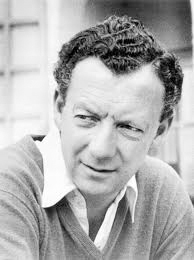by Daniel Hathaway

Wilson’s choral forces — Trinity Chamber Singers and the Trinity Cathedral Choir — sang the Hymn to St. Cecilia and the festival cantata, Rejoice in the Lamb, respectively, and countertenor John McElliott and tenor JR Fralick teamed with Wilson in the second of Britten’s Five Canticles, Abraham and Isaac.
The key to Britten’s renown as a vocal composer is his choice of excellent texts to set and his dead-on intuition about how to fit music to words. In the case of the Hymn to St. Cecilia, the poetry is by W.H. Auden; for Abraham and Isaac, the words come from the late-medieval Chester Miracle Play; for Rejoice in the Lamb, the text is made up of selected lines from the ecstatic ravings of the eighteenth-century poet, Christopher Smart, whose Jubilate Agno has to be read in its entirety to be believed.
This is all terrific material, and Britten sets it masterfully, finding the perfect gestures to match up with every poetic image from dancing angels coming out of their timeless trance, to God speaking to Abraham in an eerie duet, to painting the antics of cats and mice and dissociatively celebrating the rhymes of instruments (“the clarinet rhymes are clean seen and the like”).
Trinity Chamber Singers did a fine job of tuning the unaccompanied Hymn to St. Cecilia — a tricky feat to bring off — and McElliott, Fralick and Wilson (at the piano) made a heightened dramatic scene out of one of the most chilling tales in the Hebrew scriptures. The Cathedral Choir was light, clean and rhythmically precise in Rejoice in the Lamb, ably supported at the organ by Elizabeth Lenti, who handled all its sudden registration changes with ease (and maybe a helping hand or two) and brought scintillating articulation to her demanding part.
Incidental solos in the Hymn were splendidly sung by Madeleine Healey, Judith Overcash, Dawn Durdella, Matthew Jones and Michael Peters. In Lamb, Maria Rauschenfels painted the cat Jeffrey in elegant phrases, Durdella was a charmingly twitchy mouse, Bradley Upham crooned winningly about flowers and Peters athletically introduced the alphabetical attributes of God.
Following an intermission, the rest of the program was devoted to Johann Sebastian Bach’s cantata (or is it an oratorio?) Lobet Gott in seinen Reichen, BWV 11. Bach got invited to the party on the strength of Britten’s “delight” in conducting and recording his works (program notes). If that justification seems a bit slim, it’s always fine to program Bach, especially a rarely-performed work like BWV 11, which is sometimes called “The Ascension Oratorio” because of its subject and extensive quotation from the gospels, even if it’s nowhere near the scale of the Christmas and Easter Oratorios written in the same liturgical cycle.
Trinity Chamber Orchestra gave a tight, bright introduction to the festive opening chorus and the Cathedral Choir responded in kind. Soprano Judith Overcash, altos John McElliott and Robert Vance, tenors Bradley Upham, Mark Bitikofer and Matthew Jones and basses José Gotera and Michael Peters were all fine soloists. A particularly charming movement depicted Christ’s escaping the bonds of earth by dropping out the obligatory bass line. Flutists Linda White and Kyra Kester paired together in some luscious duets. The work ended with another festive chorus adorned with flawless high trumpets (Gary Davis, Ken Wendt and Larry Herman.)
One startling omission in the extensive printed program — replete with notes and texts — was a list of the members of Trinity Singers and the Cathedral Choir. Surely they’ll want to keep that document as a souvenir of a memorable evening, and their names should be there for posterity.
Daniel Hathaway was Director of Music at Trinity Cathedral from 1977-2008.
Published on ClevelandClassical.com November 26, 2013
Click here for a printable version of this article.



